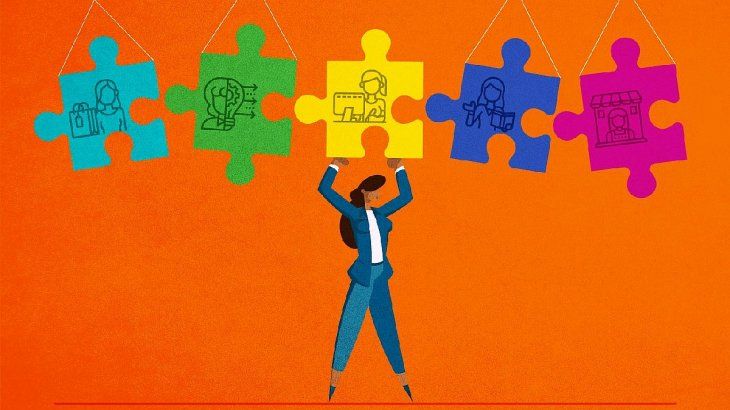In recent years, especially since the movements #NiUnaMenos and #MeToo there was an evolutionary change in the treatment of seeing March 8 as a day of celebration, gifts, promotions and discounts; to resignify it as a day of commemoration of its original meaning and to talk about women’s rights and inequalities. This was achieved thanks to a social agenda that began to install issues in the public arena for women’s rights, femicides, gender gaps, as well as their impact in the workplace due to the lack of leadership spaces and gender biases.
NOT ONE LESS URSULA
Mariano Fuchila
I remember that until a few years ago on this date, the word “gender” was frowned upon or was forbidden to mention, especially in companies: “better say feminine or empowerment”. However, today most companies no longer have a festive approach to March 8, but an approach with a social commitment to the gender agenda. This change is often due to a corporate decision but, other times, also because the same people within the company, especially women from the younger generations, are the ones who demand a certain treatment of the issue. It can be seen that there is a growth in the management of activism within companies, increasingly managed from the same company and, other times, in a disorganized manner.
When they ask us for recommendations about “what to talk about on 8M?” It seems fundamental to me to understand that you cannot give any talk, in any company and in a standardized way, as if it were a pre-established “pack”, which would be another way of marketing it. Something that is fundamental is to understand what is the stage in which the company is. This implies understanding what the culture of the organization is, how it is composed, what is the tone of the informal conversations that take place regarding these issues, taking into account the different perspectives, especially at the generational level, if there is more or less adherence to these social agendas and understand, above all, what would be the most productive conversation to start on March 8, always from the side of social responsibility. What is it that we want to happen? What are we trying to achieve? Are we interested in promoting change or concrete actions during the rest of the year or is it just a one-off talk one day?
Another point that I think is important to make has to do with never underestimating the social atmosphere that exists regarding these issues in Argentina. Particularly these days there is a great social tension from an event that shocked society, such as a gang rape of a girl in broad daylight in Palermo. The maximum responsibility of a company has to be, not necessarily dealing directly with the issue, but it is important not to ignore that this is the context in which we find ourselves in this March 2022.
The third point that I would like to make is that there is a marked growth in jobs “diversity leaders” in companies. Slowly it is beginning to be understood that it is not a human resources issue but rather a strategic agenda in the boards. However, we are faced with the challenge of not always having profiles of people who are specialists in the subject: The increasing training of these people who lead these issues is essential, so as not to fall into a management of the diversity of uncoordinated actions without a common thread or of a failed management.
A huge risk today is to treat diversity or gender issues as if they were a staging, that is, to act as if. For this, it is important that there is a true management of diversity that drives changes with political commitment within the organization and a clear strategy. Managing gender issues as “political correctness” leads nowhere and is a very important point in talent retention. Undoubtedly, what will be promoted the most in the coming years will be: How to effectively manage diversity?
Company Business Diversity.jpg

Courtesy: iadb
Finally, I would like to highlight the importance of reviewing the value chain to work on these issues. Many companies carry out actions that, in reality, repeat gender stereotypes, that repeat biased content or that focus the message on the work that women have to do to empower themselves, once again focusing only on women. March 8 cannot be a women-only space. Many times they end up being empty messages and it has to do with the providers behind the organization. The management of equality cannot be thought of with the same actors as always.
It is clear that there was a growing evolution in the treatment of gender issues in corporate agendas. This came hand in hand with the growth of the tendency to work on diversity strategies both in global companies, adapting them to the regions, or in each country, as is the case of multinationals, the same was seen in Latin American companies and local companies. But let’s not forget that, behind all management, it is always about people and their dignity. Let’s not lose focus on the assembly of these institutional spaces.
CEO of Bridge The Gap.
Source: Ambito




